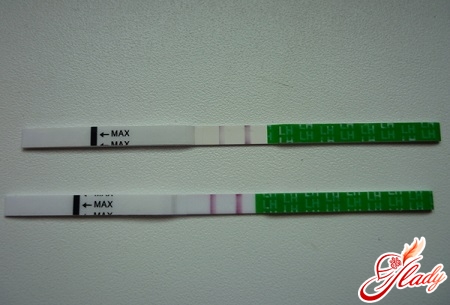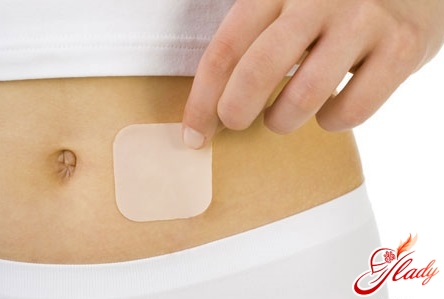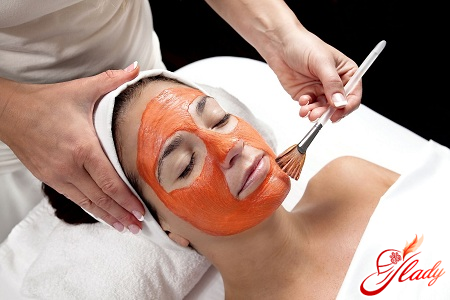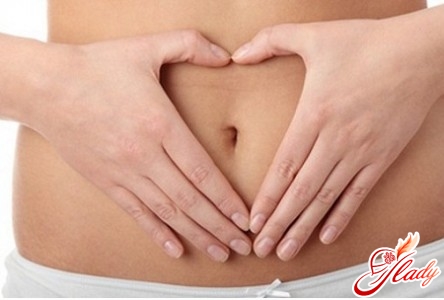 How to deal with hyperhidrosis (strengthenedperspiration)? And in general - do I have to fight him mercilessly? After all, everyone sweats in some situations, and no one considers it a disease. In extreme cases - a feature of the body, albeit unpleasant, but still not to such an extent as to run around the doctors. And here many make a big mistake. Abundant sweating can signal about dozens of malfunctions in the body! Of course, sweating is a natural function of the human body, which helps to free the body of "slag". Together with the kidneys, the sweat glands participate in regulating the volume of the fluid, its excess is excreted through the urinary tract, and also with the help of sweating. Remember how you react to the heat - you want to go to the toilet less often, but the sweat, as they say, pours a stream. Or take another situation when you ate a large amount of watermelon or drank plenty of water. Here, sweating can increase somewhat, but the main burden falls on the kidneys - you will often want to go to the toilet "in a small way."
How to deal with hyperhidrosis (strengthenedperspiration)? And in general - do I have to fight him mercilessly? After all, everyone sweats in some situations, and no one considers it a disease. In extreme cases - a feature of the body, albeit unpleasant, but still not to such an extent as to run around the doctors. And here many make a big mistake. Abundant sweating can signal about dozens of malfunctions in the body! Of course, sweating is a natural function of the human body, which helps to free the body of "slag". Together with the kidneys, the sweat glands participate in regulating the volume of the fluid, its excess is excreted through the urinary tract, and also with the help of sweating. Remember how you react to the heat - you want to go to the toilet less often, but the sweat, as they say, pours a stream. Or take another situation when you ate a large amount of watermelon or drank plenty of water. Here, sweating can increase somewhat, but the main burden falls on the kidneys - you will often want to go to the toilet "in a small way."
Where does the norm end and the disease begins?
About a hyperhidrosis speak in those cases whenprofuse sweating interferes with living and doing everyday things. This applies to both normal life and work. People suffering from severe palmar hyperhidrosis can not even work in the specialties: musician, work with documents (lawyer, accountant). Any activity that involves touching the hands of objects is inaccessible to these people. In addition, there is a purely psychological barrier - for eternally wet and cold palms a person begins to hesitate to reach out for a handshake. This leads to the fact that he leaves his job, closes in his house. The circle of communication sharply narrows, the patient develops a neurosis, and in a consequence - depression. And this we have analyzed only one case of hyperdensity, when one zone sweats - palms. Scientists are interested in the causes of profuse sweating on the palms for a long time. Often this disease is hereditary. But it is not at all a fact that if the father suffers from palmar hyperhidrosis, then the same fate awaits the son.
What other types of increased sweating are distinguished by doctors
I must say that the kinds of excessive sweatingquite a bit of. There are two main signs, according to which doctors share the hypercharge - this is local (local) and general. Local, in turn, is divided by the location of abundant sweating:
- palmar-plantar form;
- axillary hyperhidrosis;
- Craniophatic (from Latin words - "head" and"Face"), in this case sweaty scalp or the entire face. But the individual parts of the face may sweat out: the nose, forehead, cheeks, or the area above the upper lip.
- hyperhidrosis of inguinal and perineal;
- hyperpotency of the back;
- hyperhidrosis of the abdomen.
Each type of local hyperhidrosis is treated differently, the scheme is selected individually for each patient. 
What to Tell a Doctor for Proper Diagnosis
Doctors-dermatologists - these are the specialists,who are engaged in the treatment of skin diseases, most often meet with the named pathology. The first thing the doctor must find out is what contributed to the cause of profuse sweating. To do this, first a complete history (the history of the disease: when the first manifestations of the disease began, how often seizures occur, whether there are similar cases in the family). Further, the doctor prescribes preliminary general tests: blood, urine. Sometimes a sweat analysis is done. In case of detection of abnormalities, an extended blood test, x-ray, ultrasound of internal organs is prescribed. This is done to exclude other diseases that could lead to increased sweating.
What diseases are accompanied by excessive sweating
There is a whole list of diseases in which an increasesweating is one of the symptoms, but not the leading symptom. In these cases, the underlying disease is treated, and the sweating gradually decreases, and then comes back to normal. As an example, you can bring all the known terrible disease of tuberculosis. Sometimes it is accompanied by a cough, but there are also hidden forms, in which the only signs of a malfunction in the body are general weakness and sweating. The cause of profuse sweating, there may be an infection, and it does not appear immediately. Laboratory tests of blood, urine, sputum are required. In addition to tuberculosis, there are many more chronic infections, accompanied by intense sweating. As for acute infectious diseases, almost all of them pass with a rise in temperature and excessive sweating. For examples, you do not need to go far: it is influenza and other common diseases that are transmitted through the air (by airborne droplets). 
Endocrine diseases and excessive sweating
Many diseases of the endocrine systemit accompanies profuse sweating. First of all, it is an increased function of the thyroid gland, the so-called "goiter" (or "pop-eyed"). From these names it is clear that the main symptoms of increasing the content of thyroid hormones are unusually convex eyes, the formation on the neck resembling a bird's struma (this is the enlarged thyroid gland). When the function of the thyroid gland is raised, too much of the hormones that it produces are released into the blood. This leads to increased sweating, palpitations, instability of the psyche (such patients then laugh, then sob). The disease is treated by a doctor - an endocrinologist. In most cases, a person's condition can be normalized, sweating also becomes normal. Endocrine diseases include diabetes mellitus, in which excessive sweating of the hands, armpits and upper body are also observed. If the patient complies with all the prescriptions of the doctor, punctures insulin (or takes pills) in time, follows a diet, then the condition can be normalized, while sweating decreases.
Increased sweating in cancer
The cause of profuse sweating may beoncology. Many tumor processes occur with increased temperature and sweating. Especially it is characteristic for intestinal tumors, some tumors of female genital organs. Unfortunately, tumor processes in the early stages can be difficult to detect, but if this is possible, then surgery often saves the life of the patient. Therefore, for incomprehensible temperature jumps and excessive sweating, the whole body should be examined in order not to miss a serious disease.
Increased sweating during pregnancy
Pregnant women often complain of increasedsweating, which was not observed before pregnancy. This is due to a change in the hormonal background. With this sweating it is very difficult to fight, because pregnant women can not take most drugs, to herbal infusions, too, should be treated with caution. Effective antiperspirants, which include aluminum, are also undesirable during this period. It happens that excessive sweating persists even after delivery, during the whole period of breastfeeding. Here you can advise only frequent hygiene measures - shower, wiping sweaty places. Usually, a few months after the termination of breastfeeding, the hormonal background normalizes and sweating returns to normal. 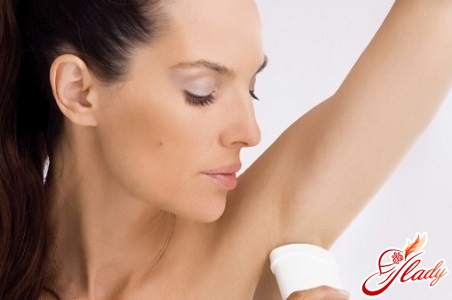
Other reasons for the general hyperdrive
There are many more diseases that causeincreased sweating. These include certain hereditary diseases, acute poisoning, acute acute conditions such as shock or myocardial infarction. And in a separate group cases of hyperhidrosis have been identified without a definite cause. Hyperplasticity of the body is a great inconvenience, but a comprehensive examination does not reveal any pathology. Then we are talking about "essential" hyperhidrosis, that is, it is considered as a single disease, not associated with any other.
Local hyperhidrosis is treated in dozens of ways
Local (local) hyperdrug most oftenis an independent disease. If the disease reaches the middle or severe stage, when sweat drips with drops or even "pours down", special treatment is performed. This includes the use of sedatives, because this condition has a negative effect on the psyche, and physiotherapy, and the use of antiperspirants (deodorants). In some cases, injections of Botox or Disport drugs are helpful. They are used for palmar-plantar, axillary and even inguinal-perineal forms of the disease. With a strong sweating of the palms, surgery is performed - through a small puncture into the neck an endoscope with miniature instruments is inserted. The surgeon clamps the nerve part with a special clamp, which is responsible for sweating on the hands. After such an operation, the effect remains for a lifetime, which is very pleasing to patients who had been tortured for years before. What is compensatory hyperhidrosis The word "compensation" speaks for itself. Compensatory - in this case means "instead of the other." Let us give an example. After a while after surgery for palmar hyperplasticity, the person begins to sweat strongly back. His hands are healed, his hands are dry, but his back sweats so that he has to change his clothes several times a day. In this situation, patients are sometimes asked to do a second operation and remove the nerve clamp to make the back dry again. So, we disassembled most of the causes of increased sweating, but we must remember that self-medication is not necessary. Today, doctors will help to choose a method of treatment in almost any form of hyperdrug.





